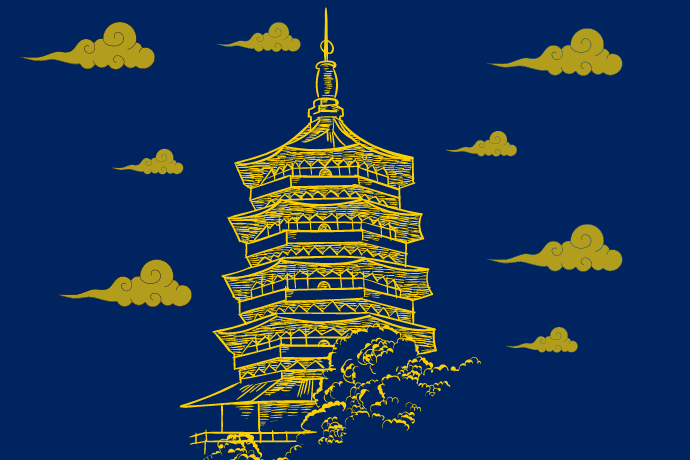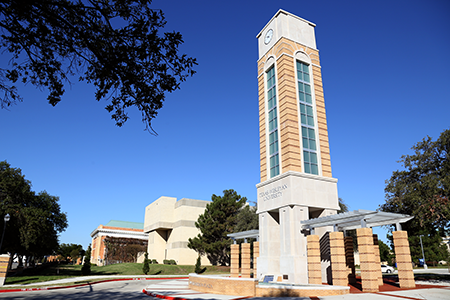How learning about the Chinese culture can boost your resume

With the Lunar New Year coming up, now’s the perfect time to start learning more about the Chinese culture. The Lunar New Year is the biggest holiday in China with celebrations lasting for 15 days.
Learning about the holiday is a fun way to increase your overall knowledge of Chinese culture — which can lead to some big benefits when it’s time to start looking for that job after graduation. The Lunar New Year has huge social and economic benefits for many Asian countries, which is important to understand when you’re thinking about a career in business, science, politics and even teaching.
Not to mention, knowing the language and culture could help you potentially land a job in China – which ranked number three in the Top 10 Countries with Highest Job Opportunities from Visa First, a global visa company.
At Texas Wesleyan, you can get a minor in international studies to help you understand a variety of cultures and boost that resume. You’ll not only learn about political and economic differences of other countries, but also dive into the psychology and behaviors of people around the world.
Get into International Business
China is the world’s second-largest consumer market — that means people in China are buying goods and services more than ever. And if you’re looking to study business, understanding the Chinese market can make you stand out to the thousands of U.S. companies that work with China.
Over one million American jobs are supported by the exporting of goods and services to China. That means that American businesses are sending supplies and providing expert knowledge to China, and they need people who can understand the culture to make deals, offer support and more.
Texas Wesleyan offers several ways to get more international business knowledge — you can major or minor in several business areas, tack on business tracks to your major or even just take a few business electives like international business.
Spread Scientific Research
Beyond business deals, China also ranks as the world leader in scientific research, according to Japan’s National Institute of Science and Technology Policy (NISTP). The United States is working to be competitive in the sciences, but partnerships with China can help improve research throughout the world. And knowing the Chinese culture could help you make the right relationships to impact studies. Companies are looking for people to be able to translate research, work with Chinese scientists and help make important partnerships.
Texas Wesleyan offers multiple ways to break into a science career with majors in biology, biochemistry and chemistry. You can tack on electives like cultural anthropology and introduction to international studies to learn about the world’s cultural diversity – which can make a big difference when working with scientists from other countries.
Influence Political Policies
The United States and China have many political, economic and security interests that effects both populations. By understanding Chinese culture, you could help improve international relations between the two countries – and there are several ways to do it. You could join a foreign intelligence agency, become an elected official, take a job as a public diplomacy advisor and more. The more you know about a culture, the more jobs you could apply for. That's because many governmental jobs hire people with extensive knowledge of different cultures – like a director of China policy that coordinates with policymakers, the media, organizations and more to help improve the U.S.-China relationship.
If a job improving international relations sounds like a career for you, check out our political science majors. You can choose to focus on global studies to learn more about Asian history and politics, foreign policy of the United States and even take classes in international relations.
Improve Multicultural Teaching Methods
If teaching is more your route, knowing the Chinese culture may give you a cutting edge in working with students. You’ll be able to better understand your students' backgrounds to create a more equitable classroom and help develop a cross-cultural environment for students to learn from each other.
China also employs English teachers from elementary to college level. China looks to employ over 100,000 English teachers a year to help fill the demands of learning the English language as part of school curriculum.
If you’re thinking about teaching, TXWES’ education majors allows you to take classes in multicultural education and teaching English as a second language. You’ll gain the skills to work with culturally, linguistically and ability diverse students and their families to provide better learning experiences.
Benefits Beyond the Resume
Sure, buffing up your resume to land that dream job is important – but there are several other reasons to get to know the culture, including traveling and making more friends. And one of the best ways to deep dive into the culture? Learn the language. Mandarin Chinese is spoken by over 1 billion people, making it the second largest language spoken around the world.
Learning new languages also helps break down barriers. You’ll be able to talk to 1.3 billion people — that’s a lot of new friends to make. Being able to speak to someone in their native language can help you grow closer.
China has also started lowering its travel restrictions from COVID-19, which means more tourists can start exploring the country with less requirements. With knowledge of the culture and language, you can take the “roads less traveled” and traverse China away from the more touristy areas. Plus, you can learn from the locals and meet new friends! Not to mention, you can make ordering food, getting directions, buying souvenirs and more a lot easier.
If traveling to China isn’t quite on your list yet, you can still dive deeper into the culture by learning its history. China has one of the world's oldest civilizations — making it one of the most historical and interesting. From religion and politics to art and food, Chinese culture has a lot to offer. From reading more books, watching more films and movies and even taking Chinese cooking classes to taste some delicious dishes.
Ready to dive into the Chinese culture? Get a start by learning about the Lunar New Year with events on campus and in the Dallas-Fort Worth area.








